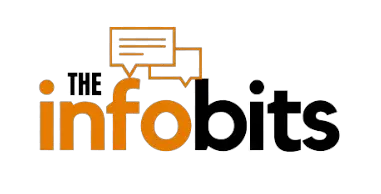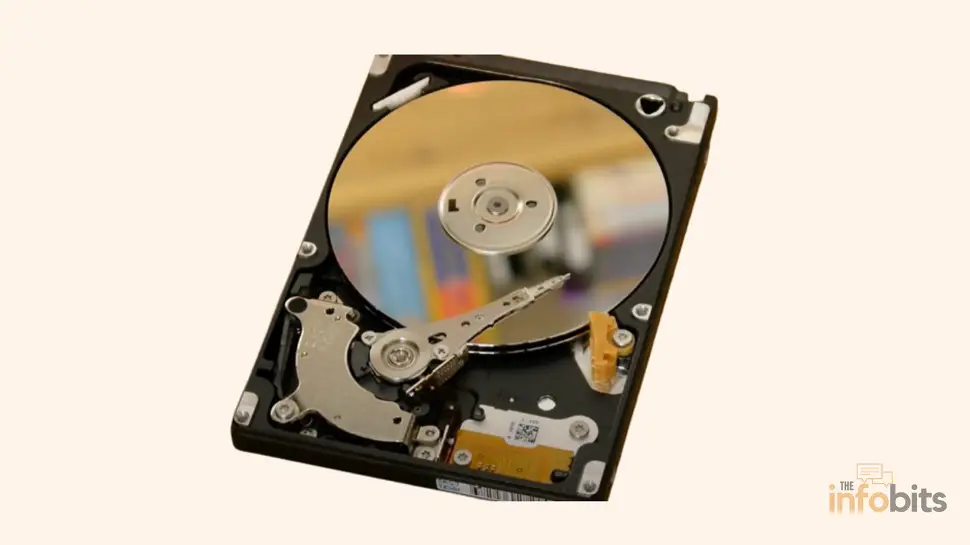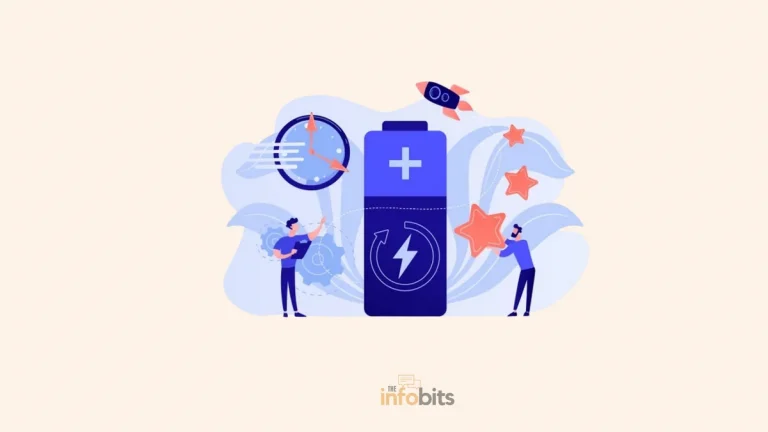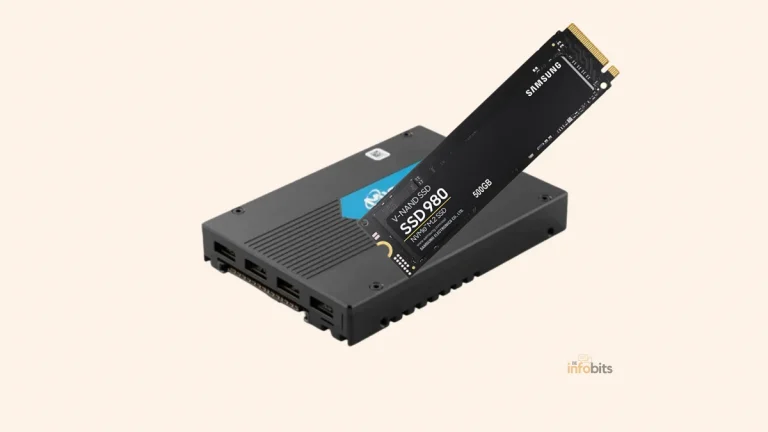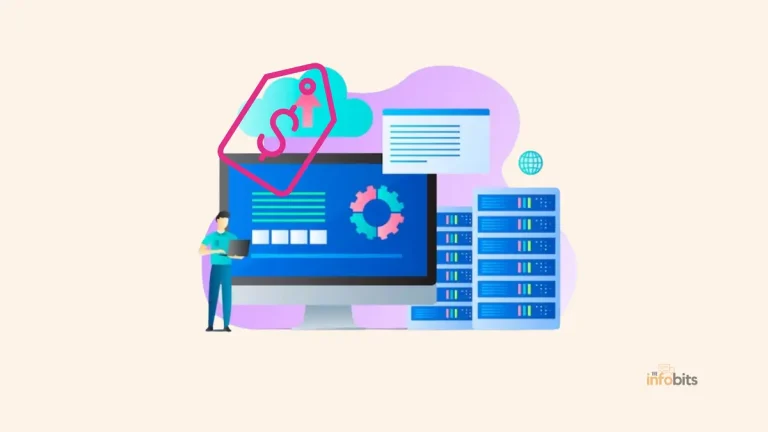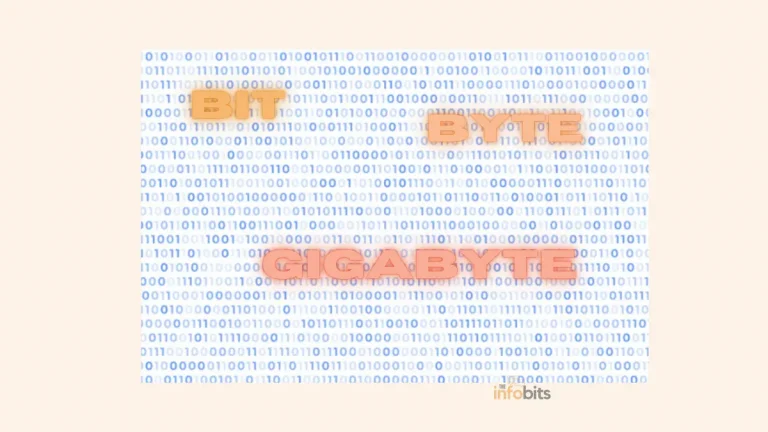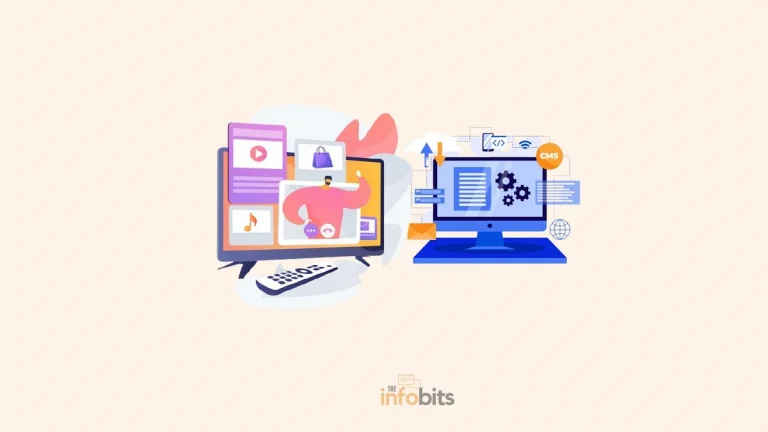Is Your Hard Drive Clicking? Here’s What You Need to Know
Even though most of us use SSDs on our laptops or desktop PCs, there are still those users who benefit from traditional hard disc drives (HDD).
Because your HDD is an electromechanical device, it is more prone to electrical or mechanical problems. One example of this sort of problem is hard drive clicking.
External hard drive clicking is a typical issue for those who use a separate backup hard drive for their computer.
What Is Hard Drive Clicking?
Hard drive clicking is a strange sound coming from the internal or external hard disk. The truth remains the same no matter how you describe the sound your hard disk produces.
You’re worried because there’s a strange noise. When you’re in this situation, you want to know what that hard drive making a clicking sound is and what it means as soon as possible.
Is there any reason to be concerned? Is it feasible to tune out the background noise?
Here are a handful of the most likely issues with your hard drive.
As long as there has been an issue inside the disk mechanism, hard drives have made odd noises. Most of the time, these hard disk noises may be really pleasant.
So, ideally, identifying the problem that isn’t caused by the computer fan or another small component of your computer is simple.
However, hard drive clicking might signify a serious hard disk malfunction and an impending crash.
Aside from the obvious error screen and inability to boot, there are a few more signs of hard disk failure. A persistent clicking noise, sometimes known as the ” hard drive click of death”, is one indication that a hard disk is likely to fail.
Hard disk technology has progressed substantially in recent years. They now have more storage capacity, faster speeds, and smaller sizes, all at a lower cost.
The vast majority of hard drives (80%) last four years or longer. However, the potential for damage is always present with prolonged use.
Is Clicking on a Hard Drive a Sign of Its Failure?
There are a few indicators that your hard disk isn’t working properly. The most noticeable is the clicking sound coming from your drive.
However, there are certain additional warning indicators you should be aware of:
- The disk works perfectly with the light on, making a faint and quiet clicking sound. That is hard drive clicking but still works without any problem.
- As the hard disk is having a connection issue, it clicks slowly and produces a little sound.
- The disk has a “death of click” issue, which causes it to click excessively rapidly and create a loud “Click, Click, Click” noise.
- Your computer keeps rebooting or displays the “Blue Screen of Death.”
- The operating system does not recognize the hard disk or displays the warning “No operating system detected” for an internal drive.
- It takes a long time to access your files (this suggests data corruption)
- When you mount the disk, the computer prompts you to format it.
If you see any of the aforementioned failure symptoms, you should stop using your hard disk and follow the steps outlined below.
Why Hard Drive Is Making a Clicking Noise?
The clicking sound was initially heard by computer users as a result of a hard disk failure. While there are several causes for a hard drive making a clicking noise, the clicking sound is caused by a fault with the disk’s read-write actuator.
Every hard drive contains a read-write actuator that is used to read and interpret data from the disk. During normal functioning, a disk head moves smoothly to track data on a disk.
If the motions become erratic and unexpected, the disk controller attempts to reset its position by repeatedly bumping back to the home position.
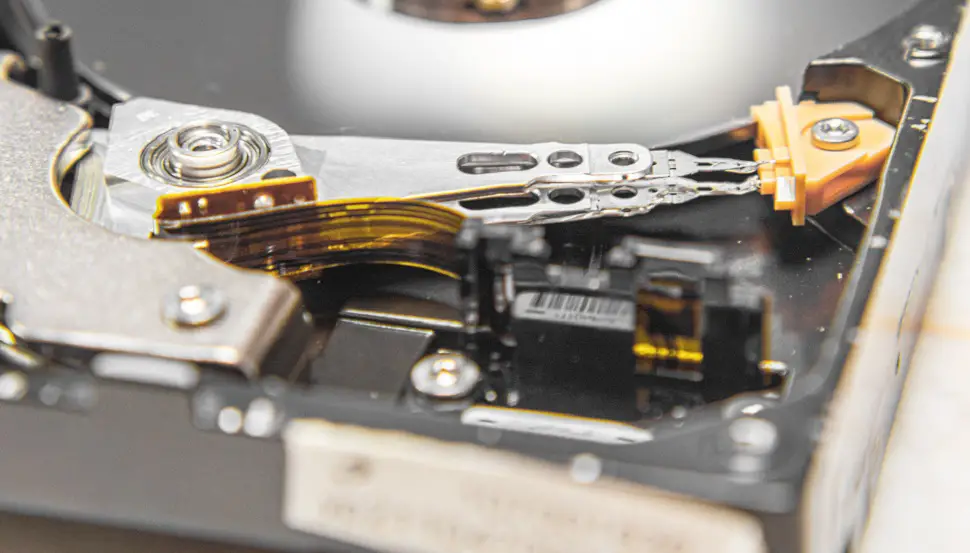
The bumping causes an audible “click,” which will last as long as the operation is carried out. The clicking sound is generated by the base of the actuator arm contacting a limiter.
When the heads sweep back and forth across the platter surface, the limiter stops them from going too far in any direction.
If the drive cannot detect the data it needs to calibrate after a few attempts, it will typically spin down.
A hard disk that clicks or makes unusual noises might be caused by a variety of causes. In most cases, data from a clicking hard disk can be recovered.
In any event, before you lose any data, you should investigate why the hard drive makes a clicking noise.
Possible Explanations for the Hard Drive Clicking
Is an internal or external hard drive making clicking noises normally?
No.Of course not.
Discover what it means when your hard disk clicks and what caused the problem. In most cases, the clicking noise is produced by a disk head defect in older hard drives.
But licking on newer models, on the other hand, might indicate a software or hardware problem.
Experienced recovery professionals can use the sound type of hard drive-clicking noise to identify which solutions to pursue based on the likely source of the problem.
These clicking sounds are difficult to identify, even though we are aware of the major causes behind this. A clicking hard disk can be caused by a variety of causes, including:
- The issue with the power supply: insufficient power supply, hard disk spin fault.
- A cable that is incompatible or has an issue is referred to as a troublesome connection.
- Physical harm such as fire, drownings, extreme temperatures, and so forth.
- Issues with the hardware include a worn/misplaced disk head, a damaged service area, a damaged PCB, and so on.
We’ve seen how the actuator traverses the hard disk platters, either reading or writing data. When the actuator is turned on, reading and writing data from the disk should be smooth.
When the movement isn’t as smooth as it should be, the actuator repeatedly tries to reset itself. This produces the sound of a hard disk clicking. And, in the great majority of cases, this is what is causing your hard drive noise.
But what is the root of the problem that is causing the actuator to move irregularly? What is causing the actuator arm to move in this irregular direction?
It has been discovered that the following are the primary issues that cause the hard drive to click when it is powered on.
1. Power Supply Problem
Inadequate power from a malfunctioning power supply device might produce hard drive clicking sounds.
If you have another power supply to investigate, this one may be simple to solve by testing the hard drive with the latter power supply.
A malfunctioning power supply might be causing noise on the hard disk (Power Supply Unit).
2. Physical Damage
This is the most prevalent cause of hard disk failure, thus it should be mentioned.
A hard drive may begin to click if it is dropped, wet, exposed to fire, or subjected to intense magnetic fields.
External factors such as these, as well as a strong collision or dust contamination, can cause a hard disk to fail, resulting in a hard disk actuator head crash.
These situations suggest that accessing your hard disk needs expert investigation.
3. Wear and Tear
Because hard drives are complex pieces of technology with multiple points of failure, no piece of equipment is foolproof.
Even if the hard disk is brand new, it may have issues. A hard disk has moving components that will experience normal wear and tear over time, ending in a natural failure and clicking noise.
The actuator arm, in particular, may wear down and fail over time, resulting in a hard drive clicking sound.
4. Misaligned Read/Write Heads
If a hard disk is dropped or handled carelessly, the heads or spindle arms may become misaligned.
When this occurs, the hard disk typically emits an audible clicking sound. Components such as the heads and spindle arms get misaligned if the hard disk is dropped or handled forcefully.
5. Damaged PCB
The printed circuit board of your hard drive connects electronic components. A power surge or series of surges can occasionally damage that board or the head stack assembly.
When any of these components fail, the hard disk becomes unable to function properly, resulting in a click or ticking noise.
Heavy power surges can destroy both the PCB (Printed Circuit Board) and the HSA (Head Stack Assembly) in most situations.
5. Damaged Platters
If a platter is damaged, the actuator arm cannot function properly. The arm is still looking for a platter but hasn’t found one.
To discover an unbroken platter, the continuous swinging back and forth might generate a repeated ticking sound. This hard drive noise continues repeating, which is quite unpleasant.
7. Service Area Problems
The service area stores manufacturer-specific data for HDD operation. This data is critical for HDD operation and can be corrupted by module reading errors or defective sectors.
The drive will no longer be able to access its data if the service area is destroyed.
In an attempt to identify service area data, the actuator arm swings back and forth. When this happens, the hard disk continues to click.
How to Fix Clicking Hard Drive?
Do you hear a loud “click, click, click” noise when you switch on your computer or connect an external hard drive?
Don’t be alarmed. This article contains the most dependable repair solutions, and you will quickly learn how to fix a clicking hard drive. Follow these methods to get your hard drive working again.
It is not always the case that your hard disk is clicking due to a serious mechanical problem. It can be a lot simpler at times, but it is still a challenging solution.
The clicking of a hard drive is generally considered to be an indicator of a failing hard disk. So, how can you repair a clicking (external) hard disk?
If you’re encountering issues, first check the state of your hard drive. There might be two kinds of instances involving a clicking hard disk.
- 1. The hard drive is clicking, but it is still functional (accessible)
- 2. A clicking hard drive that isn’t being detected
Note: It is not suggested that you attempt to repair your hard disk yourself unless you are an expert technician with the necessary knowledge. This generally results in further harm and perhaps irreversible data loss.
1. Examine the Power Supply to the Hard Disk
If your hard disk is making noises, there are a few easy fixes in both of the aforementioned scenarios.
To begin, ensure that your hard disk is receiving enough power. If many devices are plugged in at the same time, the power sockets may become overloaded; therefore, ensure that the necessary power is sent to the HDD.
If it still doesn’t work, double-check that the cables are compatible with the hard drive and computer, and replace them if necessary.
These are straightforward troubleshooting techniques that will give you the best chance to fix the clicking hard drive problem and restore your data.
2. Recover Data from a Hard Drive That Is Still Clicking
If you believe the hard disk is receiving adequate power to function, the next and most essential aim is to safeguard the data on it.
If you can access the file on the HDD, the best approach to save your data is to perform a full backup as soon as possible.
If the disk continues to click, you will only have a little time to back up your data. However, if your clicking disk is recognized but no files show, you must first perform the data recovery of clicking hard drive using reliable hard drive recovery software like Stellar Data Recovery Software (available on Amazon).
3. Firmware Updates and Repairs
Firmware errors within the hard disk can sometimes create a clicking sound. In such instances, upgrading or fixing the firmware may be essential. Firmware serves as a link between the hard drive’s hardware and software, and a bug or an outdated version might cause clicking noises. Firmware upgrades are frequently available via the manufacturer’s website or with the assistance of professional software.
4. Use a Data Recovery Service
If data recovery software fails to retrieve data from your clicking and unreadable hard drive, you will need to hire a data recovery professional.
There are many data recovery services available, such as After Protection (which can be subscribed to through Amazon) for your entire computer system or external hard drives.
After recovering data from the clicking hard drive, you may repair and make your clicking hard drive operate again by doing the remedies listed below one by one.
5. Change Hard Drive Connection to Fix the Clicking Hard Drive
A clicking hard drive is generally caused by a lack of power, however, changing the USB port may help in certain cases.
A broken or incompatible connection cable can also cause disk clicking. In this situation, you must properly inspect the connection cable, including the power and data cables.
If the hard drive is external, there will only be one cable. If you discover a break or corrosion in the cable or its terminals, replace it with a new one.
Also, make certain that the hard disk and the computer are tightly connected.
You should also know your hard disk’s USB version (USB 2.0 or 3.0). The USB 3.0 hard disk will not work with the USB 2.0 cable and may not be detected.
If the hard drive clicking fix is not possible with this method, connect it to another computer. So that we can assure you that if there is an issue with your computer’s motherboard.
Related: Motherboard diagnostic tests and common motherboard problems
If you have an external hard disk, this procedure is quite simple. However, if the hard disk is internal, remove it from the PC and connect it to the computer as an external drive.
Hard drive enclosures can be used for this purpose. Connect the clicking hard drive as an external hard disk to the other PC.
These recommendations may assist you in ruling out any potential connection issues. If the clicking noise persists, consider the alternatives suggested below.
6. Cool the Hard Drive
When the hard disk overheats, you may hear a clicking noise from the computer. Allowing your hard disk to cool will lower the temperature, shrinking the interior components and freeing up any stuck or trapped ones.
Shut down the PC or laptop for a few minutes for this reason. Additional fans can be used to keep the hard disk cool.
Back up your data or recover data from the hard disk as soon as it starts working again. This approach is quite beneficial in older models; nevertheless, we may attempt this solution in newer models as well.
If the existing hard disk is too old, replace it with a new SSD. Replace the failed internal hard drive with a high-quality SSD, such as the Samsung Electronics SATA III Internal SSD (available on Amazon).
7. Repair Clicking Hard Drive
If the HDD clicking sound persists, we may safely assume that the hard disk is experiencing significant hardware issues, such as a broken head reader or damaged hard drive components.
Hard drive repair specialists may be necessary in this case to repair the clicking hard disk and retrieve data from it.
You have the following options when it comes to clicking hard drive repair:
1. Send in the defective hard drive for a replacement if it is still under warranty. If your clicking hard disk is beyond repair, your only option is to replace it.
2. Seek help from the hard drive manufacturer’s support team.
3. With the clicking hard drive, go to a local hard disk repair service.
If there is an electrical failure, the control board may be replaced, and if the disk head is weak or damaged, it can also be fixed.
Things to Remember
We have now seen how hard drive clicking happens and the causes behind it.
It is usually a good idea to back up your essential files frequently. Hard drive noise may not always create severe problems, and you may still be able to access your files.
In certain situations, though, it is irreparable. If you can access the disk when the HDD clicking sound is detected, back up all of your data immediately.
Then you go to the next steps in the solution. In addition, whether choosing an HDD replacement or a new drive, we recommend buying a Solid State Drive (SSD) is always a good option. You can find some of the best SSDs on Amazon by checking out these listings.
Conclusion
Hard drive clicking might be concerning, but with the right knowledge and methods, it can be efficiently solved.
Users may restore control of their hard drives and avoid data loss by recognizing typical reasons for clicking, using diagnostic tools, and researching DIY and expert solutions.
Implementing preventative measures and being proactive in hard drive maintenance will considerably increase its lifespan.
Finally, if data recovery is required, there are several ways of retrieving useful information from affected hard disks.
Users may protect their data and maintain the best functioning of their hard drives by following the recommendations and suggestions described in this article.
Why is my hard drive clicking?
Mechanical breakdowns, electrical problems, or firmware flaws are all possible causes of hard drive clicking. It is frequently an indicator of a problem with the hard drive’s internal components, and immediate resolution is necessary to prevent data loss.
Can I resolve the hard drive-clicking problem on my own?
You can try several DIY procedures depending on the reason and degree of the clicking. Connecting and securing cables cooling the hard disk, and restarting the BIOS are some examples. However, it is crucial to remember that these solutions are not always effective, and in certain circumstances, professional help may be required.
Should I try to recover data from a clicking hard drive?
If you value the data on the clicking hard disk, you should avoid attempting data recovery on your own. The clicking sound indicates a mechanical problem, and continued efforts to access the disk may result in more damage and perhaps irreversible data loss. Professional data recovery services with the knowledge and resources to retrieve data from malfunctioning disks are recommended.
How can I prevent hard drive clicking in the future?
To prevent hard drive clicking, hard drives must be handled and stored carefully, avoiding physical shocks or severe temperatures. Regularly upgrading and maintaining your hard drive, such as installing firmware updates and conducting diagnostic tests, may help in identifying and resolving any issues. Implementing backup solutions and backing up your data regularly will give an extra layer of security against data loss in the case of a hard disk failure.
We hope you found this article helpful, and do like and follow us on Facebook and Twitter for regular updates. In addition, we ask that you bookmark this page for future reference.
Sign up for our free newsletter as well to receive fresh information right in your inbox and stay informed technically.
Disclosure: If you use some of the links in this article to navigate to a retailer’s website and make a purchase, we will receive an affiliate commission on some of the products or services we recommend without changing the price you pay.
